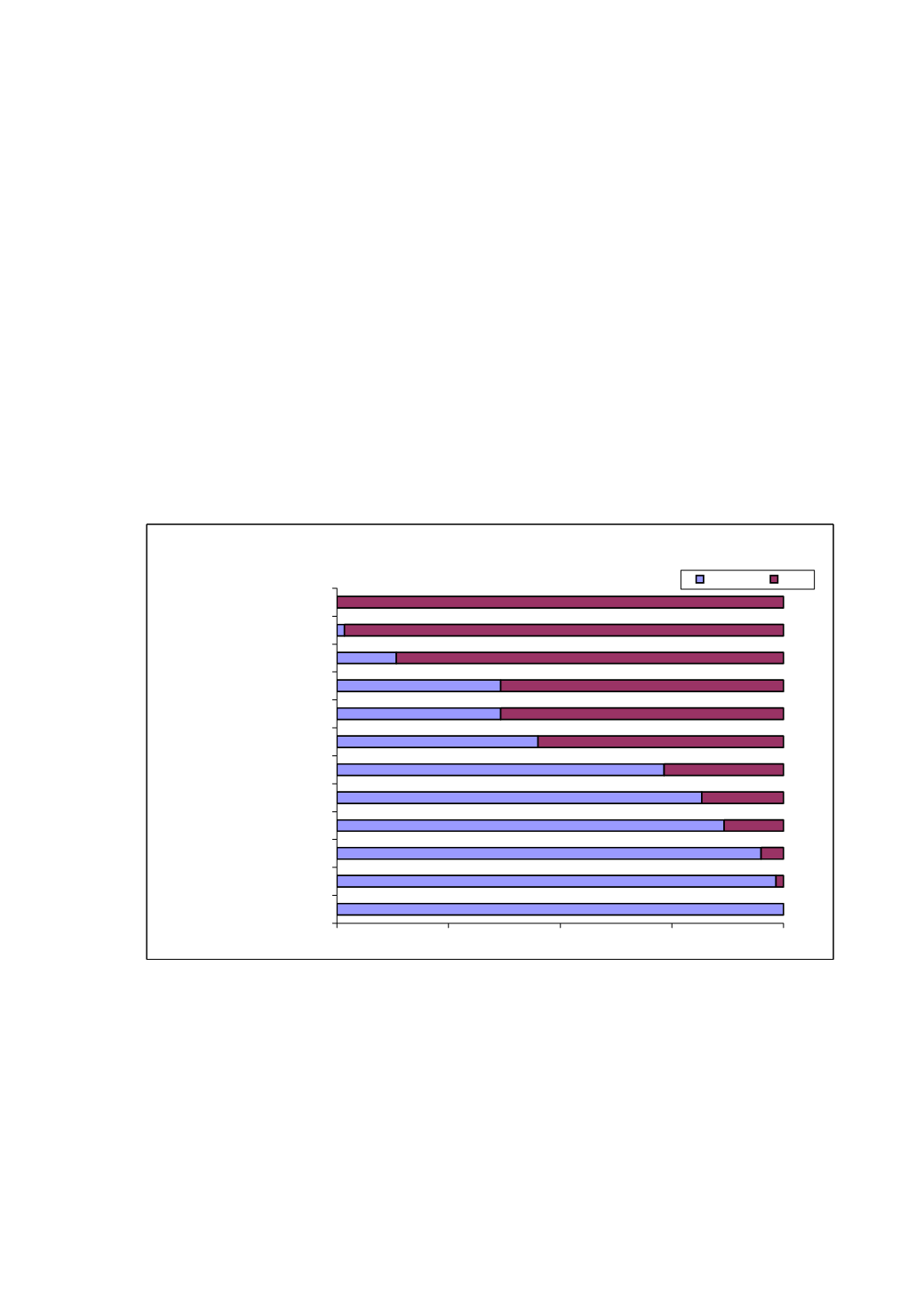

projects, information database in the
sum
centers or supporting the set-up of community
rules, community councils and women groups, and so on.).
2. Gender roles in PNRM (Pasture and Natural Resource Manegement)
Although both women and men play important, but different roles in the management of
natural resources in Mongolia’s nomadic pastoralism, women’s particular roles and
participation in natural resource use, decision-making and implementation have been
undervalued. In many cases, in research and in policy-making, women’s knowledge and
abilities are “simply” forgotten or neglected.
Labor distribution and responsibilities among men and women in herding households are
shows in Figure 1.
Women have as same roles as men in the pastoral animal husbandry and they are also
occupied with many other household works and taking care of food, clothes, and health of
their children and members of the family. Labor distribution in herding households keep
the national tradition in relation to the specifics of pastoral animal husbandry that makes
men and women’s duties and responsibilities different.
Figure 1.
Men and women's participation in farming & household work
0%
25%
50%
75%
100%
processing milk
sewing clothes
taking care of children
housekeeping
shearing wool and cashmere
collecting firewood
seasonal movements
business management
participating in meetings
herding animals
preparing hay
selecting good pasture
women
men
Source: Ts. Odgerel, SUMCNR project researcher, Report of the survey on “Labor
distribution of men and women herders in the 3 study sites”, 2002.
Men usually do most important work (in the outside of the household) particularly,
selecting pasture, haymaking , herding animals, participating in meetings, business
management and etc. However, almost of the men’s work is seasonal. But women’s work is
continuing whole day. They usually do repetitive housework particularly, processing milk,
taking care of children, housekeeping and etc., In other words, daily workload of women is
higher than men, but almost of the work is unpaid. So women workload hinders their
75









